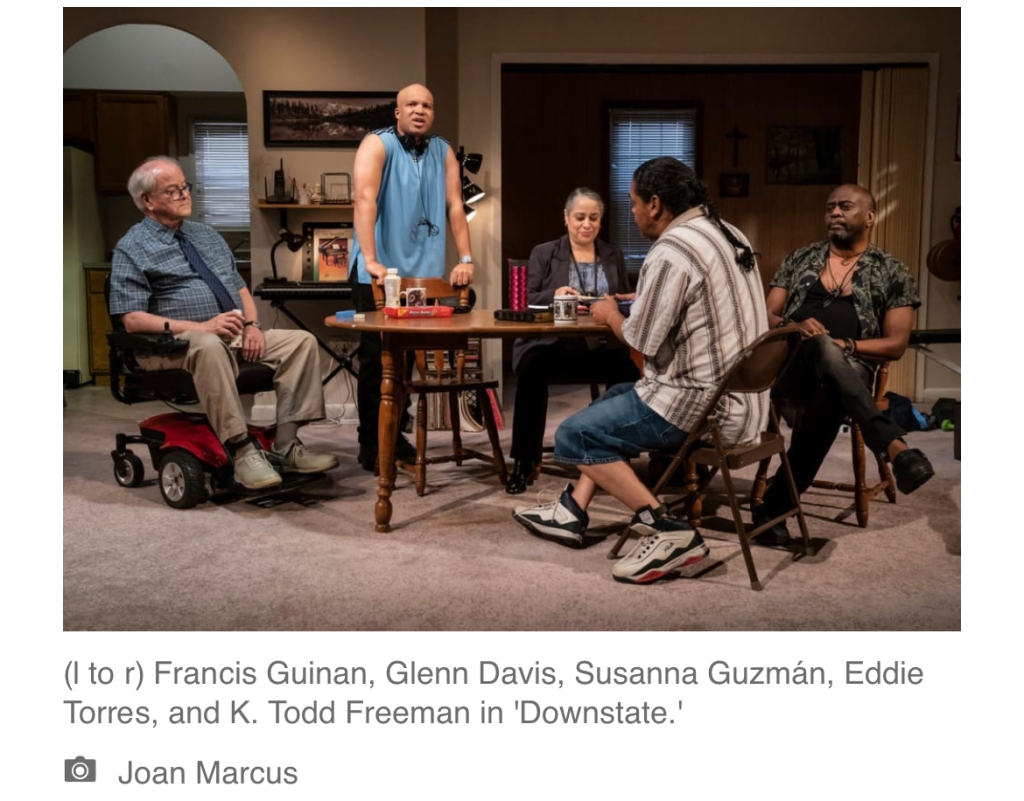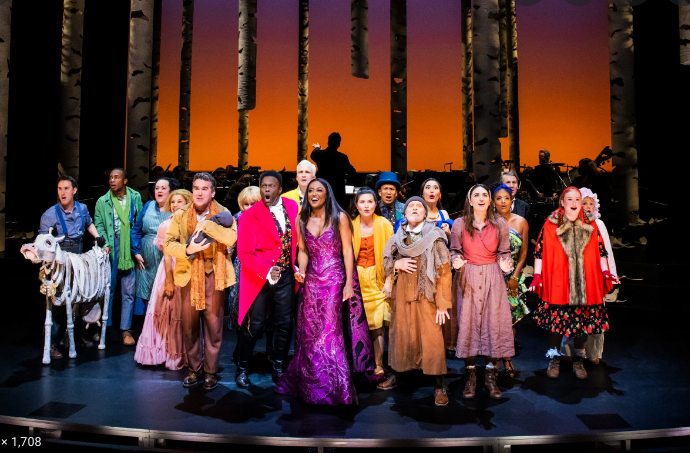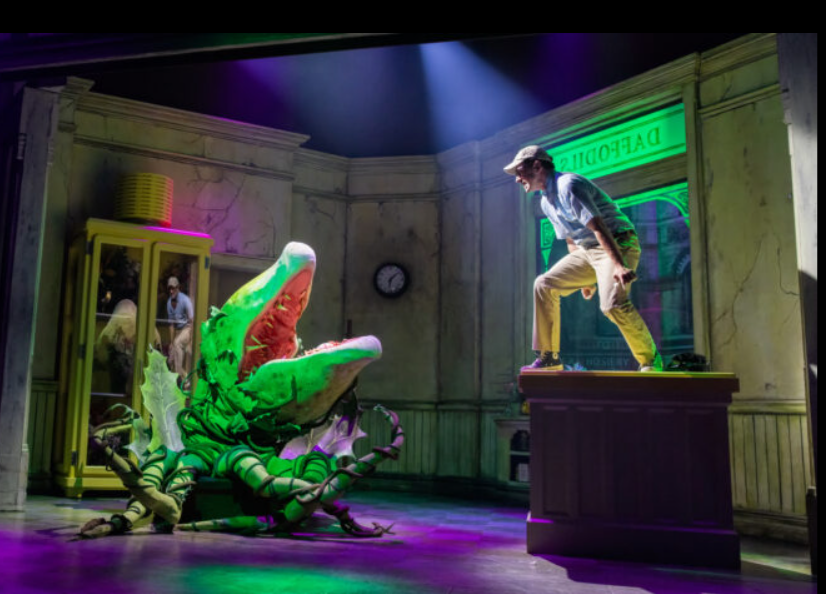
The one play I disliked the most of the past season was Downstate, which to me was a really exploitative, even masturbatory, offensively titillating, false and entirely wrongheaded mea culpa for pedophiles, set in a halfway house inhabited by four of them, which honestly seemed to speak more loudly to the playwright’s fantasy life than any serious, authentic portrayal of this psychopathy. Bruce Norris happens to be the playwright and he also wrote the also wrongly lauded and almost as offensive Pulitzer Prize- winning Clybourne Park, a vapid, nasty, hideously presumptuous and also false, completely unnecessary sequel to Lorraine Hansberry’s masterpiece A raisin in the Sun.
Norris won the traditionally suspect Pulitzer drama prize for that glib tripe which purported to address racism. What it really did, like so many white male playwrights taking on the topic, such as David Mamet with his god-awful Race, was merely exploit it – and very noisily – for cheap laughs and even cheaper highly implausible melodrama. Two of the molesters here (played by the volatile Glenn Davis and ticking time bomb Eddie Torres) are Latino and brimming with machismo, one is black and flamboyantly gay ( K. Todd Freeman) and, while I’m sure Norris did not mean them to be racial stereotypes, such appears to be his limited real experience of diversity, I venture, that they are, cartoonishly so.
Exploitation would appear to be the glib name of the game of Norris on everything, including pedophilia, and his play’s intrinsic baseness was screamingly evident in the moment I was waiting for and dreading, which inevitably happened: the salacious, graphically detailed description by the central pedophile, Frank, unsubtly performed by Fred Guinan, in a wheelchair (see how he’s paid for his sins?) to be as Aw-shucks Midwestern nice-guy as Mr Rogers (that direction is in the text, positing a contrived “see, ANYBODY could be guilty of messing with kids, you never know!”), of his seduction of Andy, the twelve year old minor, who has returned as an adult, enacted by Tim Hopper, who I’m sure was not directed to play him like Charlie Brown but does, replete with a bossy Lucy-type wife (Sally Murphy, trying to make a meal of nada), to confront him.
Old school magazine gay porn before all that became truly cancelled was once rife with this sort of oh-so wrong molester boner food and it was frankly appalling to hear it resurface in such a context at Playwrights (Being Oh-so Edgy) Horizons. While I watched in silent fury, I could almost imagine the playwright having himself with the hand that wasn’t tapping a keyboard or scribbling on a legal pad, it was so discomfitingly TMI which I suppose was exactly what this brazenly shameless, manipulative dramatist desired. Thinking back on it now, he may very well have cribbed that passage from old 1980s-early 1990s issues of Stroke, Manscape, Honcho and Drummer.
I mean, who’s to say?
Me, that’s who, and I have a partner who once wrote that kind of similar stuff for those very magazines.
Pam McKinnon’s direction seemed to spotlight the work’s deficiencies and offensiveness, although she maneuvered her little crowd of actors – one in a wheelchair – adroitly on Todd Rosenthal’s claustrophobically enclosed, convincingly lived-in set.
There’s no gainsaying the cast’s courage, forceful energy and staunch commitment to the shoddy material handed to them. And it was their text that had me wincing for them throughout, viewing all that admirable but misplaced effort, trying to inhabit characters made of cardboard and emptiness. There is the inevitable suicidal which only cheaply evoked that grandmother of such scenes: the lesbian character hanging herself in Lillian Hellman’s The Children’s Hour.
K. Todd Freeman delighted the audience as Dee, the campy, noisome designated caretaker to crippled Fred, and was to become the first of a plethora of effeminate, over the top genetically male black characters which kept popping up in show after show on Broadway this season. (Call it the “Strange Loop” effect, or “And a Dark Diva Drag Queen will Lead Them.”) Dee has worshipped Diana Ross forever and spewed verbal hosannas to her queen at the drop of a hat but I wish Norris had given her a more original idol than this easy, obvious choice, blowing the chance to educate his audience about the likes of so many lesser known but infinitely intriguing ladies of somewhat more substance than glitz, from Ethel Waters, Florence Mills and Fredi Washington to Etta James, Martha Reeves and Teena Marie (who was honorary funky white girl black, always). “Your talent lies in your choice,” was the mantra of the great acting teacher Stella Adler and this is a case in point of that, in terms of Norris’ basic lack of real artistry.
The one real stand-out in the cast for me was its quietest but easily most convincing and original character, Susanna Guzman as the men’s parole officer. She brought a bone-tired authenticity to her low-key but passionate, deftly drawn portrait of a public servant, a tough cookie indeed, but stretched to the limits of her empathy and energy, and a welcome oasis of realness in the midst of an arid, overheated desert of synthetic sturm und drang.

